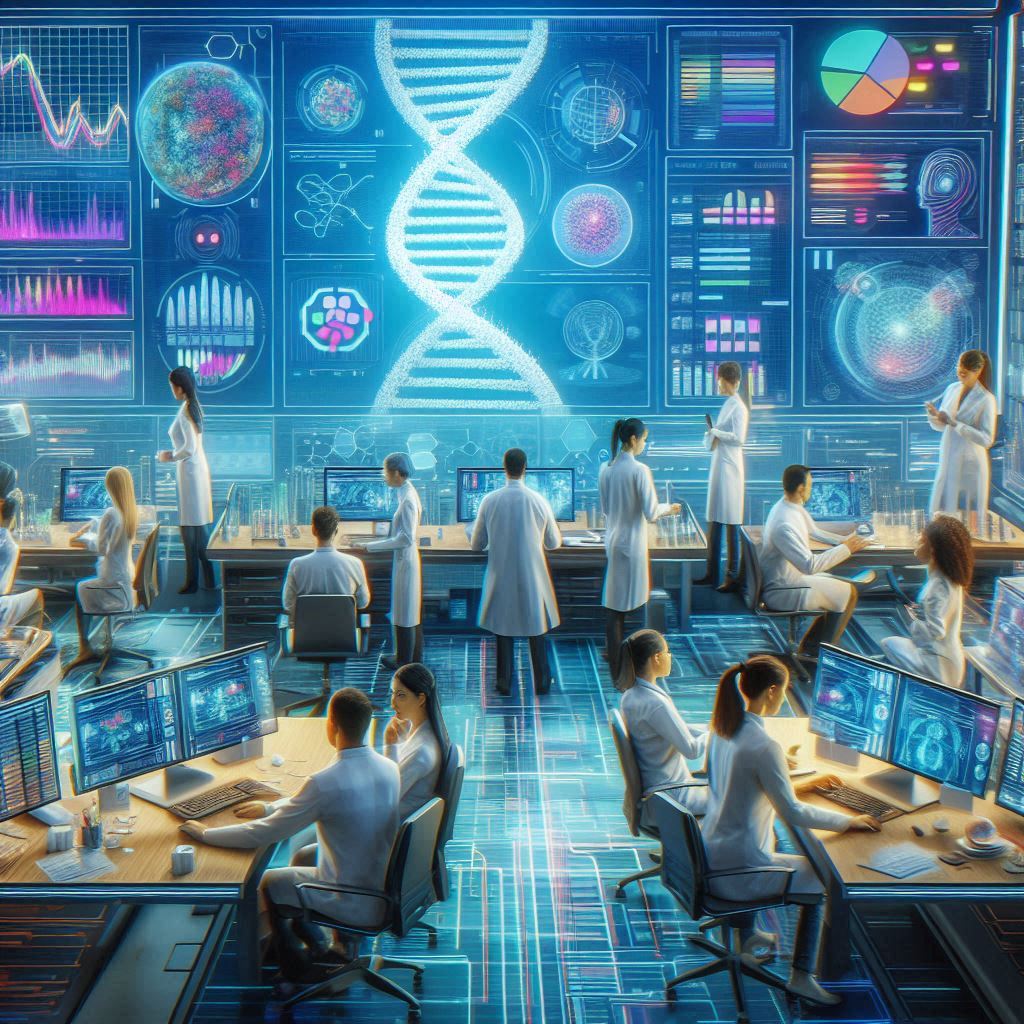The year 2025 is poised to be a landmark moment in healthcare, driven by the rapid integration of Artificial Intelligence (AI). While the idea of robot doctors may still belong to the realm of science fiction, AI is already transforming how we diagnose, treat, and prevent illnesses. From enhancing diagnostic accuracy to enabling personalized medicine, AI is reshaping healthcare in ways that were unimaginable just a decade ago. But as we stand on the brink of this technological revolution, critical questions about ethics, privacy, and the human touch in medicine remain.

From Guesswork to Ground Truth: AI Supercharges Diagnoses
One of the most significant contributions of AI in healthcare is its ability to improve diagnostic accuracy. Traditional diagnostic processes often rely on human interpretation of medical images, which can be time-consuming and prone to error. Enter AI-powered imaging technologies, which can analyze medical scans with unparalleled precision.
For instance, AI algorithms trained on vast datasets of X-rays, MRIs, and CT scans can detect subtle anomalies that might escape the human eye. This capability is particularly valuable in early disease detection, such as identifying early-stage cancers or neurological disorders. By flagging potential issues before they become critical, AI enables faster interventions and better patient outcomes.
Moreover, AI is not limited to imaging. It can analyze electronic health records (EHRs), lab results, and even patient-reported symptoms to provide a comprehensive diagnostic picture. This integration of diverse data sources reduces guesswork and ensures that diagnoses are based on robust, evidence-driven insights.
Goodbye, One-Size-Fits-All: The Rise of Personalized Medicine
The era of generic treatments is coming to an end, thanks to AI’s ability to tailor healthcare to individual patients. Personalized medicine, which considers a patient’s genetic makeup, lifestyle, and medical history, is becoming a reality with AI’s analytical prowess.
AI algorithms can sift through complex genetic data to identify biomarkers associated with specific diseases or drug responses. This information allows healthcare providers to design treatment plans that are uniquely suited to each patient. For example, AI can predict how a patient will respond to a particular medication, enabling doctors to prescribe the right drug at the right dose from the outset.
This shift from trial-and-error medicine to precision healthcare not only improves treatment efficacy but also minimizes adverse effects. Patients no longer have to endure the frustration of ineffective treatments; instead, they receive care that is as unique as they are.
Predicting the Future: AI as a Health Crystal Ball
AI’s predictive capabilities are perhaps its most exciting feature. By analyzing patterns in medical data, AI can forecast potential health risks long before they manifest. For example, AI can identify early signs of chronic conditions like diabetes or cardiovascular disease, allowing patients and doctors to take preventative measures.
This predictive power extends beyond individual health. AI can analyze population-level data to identify trends and predict disease outbreaks, enabling public health officials to allocate resources more effectively. In essence, AI acts as a health crystal ball, offering insights that can save lives and reduce healthcare costs.
Streamlining Healthcare: AI Tackles Administrative Burdens
While AI’s diagnostic and predictive capabilities often steal the spotlight, its role in streamlining healthcare operations is equally transformative. Administrative tasks, such as scheduling appointments, processing insurance claims, and managing EHRs, consume a significant portion of healthcare professionals’ time.
AI-powered tools are automating these repetitive tasks, freeing up doctors and nurses to focus on patient care. For instance, natural language processing (NLP) algorithms can transcribe doctor-patient conversations into EHRs, reducing paperwork and improving accuracy. Similarly, AI-driven chatbots can handle appointment scheduling and answer patient queries, enhancing efficiency and patient satisfaction.
By alleviating administrative burdens, AI allows healthcare providers to dedicate more time to what truly matters: delivering compassionate, high-quality care.
The Future is Now, But Are We Ready?
As AI continues to revolutionize healthcare, it is essential to address the challenges that accompany this transformation.
1. Data Privacy and Security
The use of AI in healthcare relies heavily on access to vast amounts of sensitive patient data. Ensuring the privacy and security of this data is paramount. Robust encryption, anonymization techniques, and stringent data governance policies are necessary to protect patient information from breaches and misuse.
2. Ethical Considerations
AI algorithms are only as unbiased as the data they are trained on. If training datasets are skewed, AI systems may perpetuate existing biases, leading to inequitable healthcare outcomes. It is crucial to develop transparent, fair, and inclusive AI models that serve all patients equally.
3. Preserving the Human Touch
While AI can enhance efficiency and accuracy, it cannot replace the empathy and compassion that define the patient-doctor relationship. Striking a balance between technological innovation and the human touch is essential to ensure that healthcare remains patient-centered.
Conclusion: Embracing the AI-Driven Future of Healthcare
The integration of AI into healthcare is no longer a distant dream; it is a reality that is unfolding before our eyes. By 2025, AI is expected to play an even more prominent role in diagnosing diseases, personalizing treatments, predicting health risks, and streamlining administrative tasks.
However, realizing the full potential of AI in healthcare requires addressing critical challenges related to data privacy, ethics, and the preservation of human connection. As we navigate this transformative era, collaboration between technologists, healthcare providers, policymakers, and patients will be key to ensuring that AI serves as a force for good in healthcare.
The robo-revolution is here, and it is up to us to shape it into a future where technology and humanity work hand in hand to create a healthier, more equitable world. What are your thoughts on the role of AI in healthcare? Share your comments below!